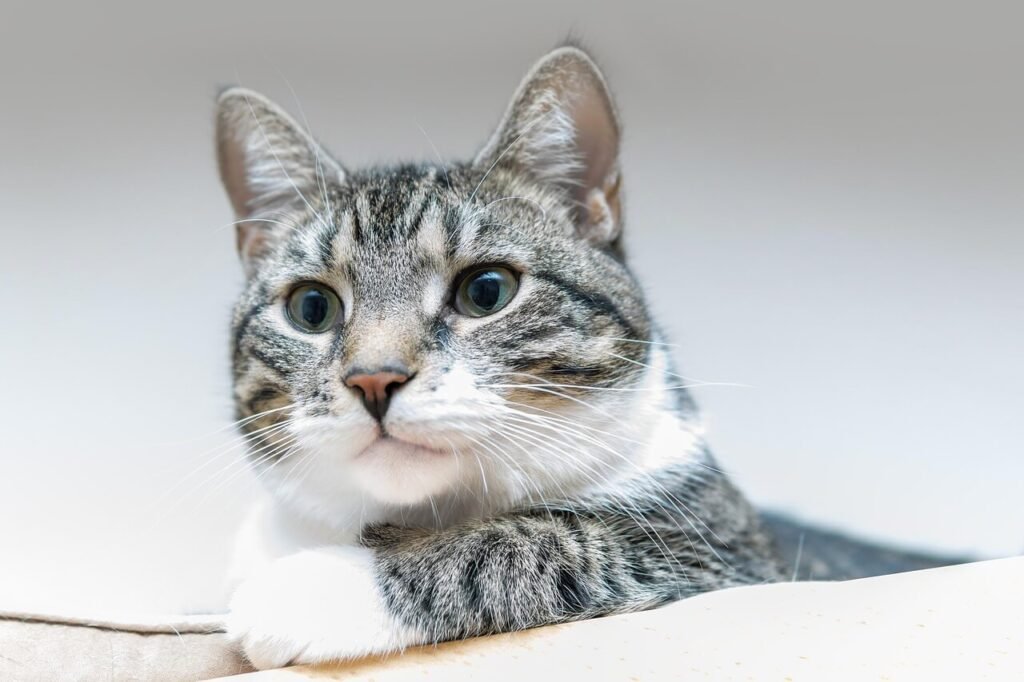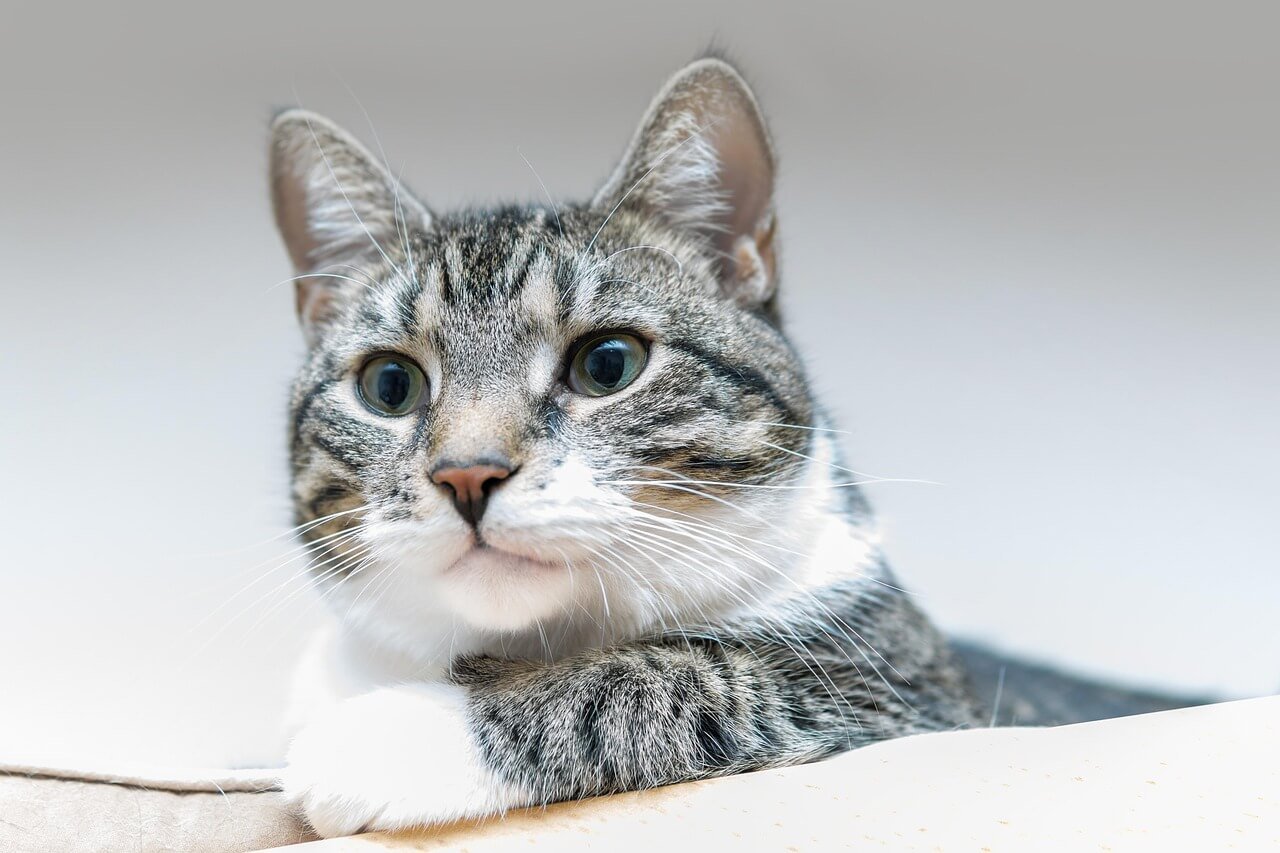Why Is My Cat Licking My Blanket? Decoding Feline Behavior
Cats are fascinating creatures, full of quirks and behaviors that often leave us scratching our heads. One such behavior is when your feline friend starts licking your blanket. While it might seem odd or even amusing at first, there’s usually a reason behind it. Understanding why your cat engages in this behavior can help you better cater to their needs and strengthen your bond. Let’s dive into the possible explanations and shed some light on this curious habit.
Why Do Cats Lick Blankets? Here Are Some Possibilities
Cats lick blankets for a variety of reasons, ranging from instinctual behaviors to emotional responses. Below, we’ve outlined some of the most common explanations to help you understand what might be going on in your cat’s mind.
Comfort and Security
Blankets often carry familiar scents, including yours, which can provide a sense of comfort and safety for your cat. Licking the blanket may be their way of reinforcing this feeling.Boredom or Curiosity
Cats are naturally curious animals. If they don’t have enough stimulation, they might turn to unusual activities like blanket licking as a way to entertain themselves.Anxiety or Stress Relief
Just like humans might bite their nails or fidget when stressed, cats sometimes engage in repetitive behaviors like licking to self-soothe during anxious moments.Maternal Instincts
Mother cats groom their kittens as a way of bonding and keeping them clean. Your cat might be channeling these instincts by licking soft objects like blankets.Texture Fascination
The fabric of your blanket might simply feel interesting to your cat. Cats love exploring different textures, and licking could be part of their sensory exploration.
Understanding these potential triggers can help you identify whether your cat’s blanket licking is harmless or if it requires further attention. Either way, observing their overall behavior will give you valuable clues.
Could Your Cat’s Blanket Licking Be Linked to Health Issues?
While many instances of blanket licking are behavioral, it’s important not to overlook potential health-related causes. Sometimes, underlying medical issues can manifest in unexpected ways, including unusual licking habits. Here’s what you should consider:
Nutritional Deficiencies
A lack of essential nutrients in your cat’s diet could drive them to seek out non-food items for oral satisfaction. This behavior is known as pica.Dental Problems
Cats with dental pain or gum disease might lick soft surfaces to alleviate discomfort. Keep an eye out for signs like drooling or difficulty eating.Digestive Disorders
Conditions like nausea or gastrointestinal upset can lead to strange behaviors, including excessive licking of fabrics or other objects.Skin Irritation
If your cat has allergies or skin issues, they might lick blankets as a way to soothe irritated areas indirectly.Parasites or Infections
Fleas, mites, or other parasites can cause intense itching, prompting your cat to lick anything within reach, including blankets.
If you suspect any of these health-related factors, consult your veterinarian promptly. Addressing the root cause can prevent further complications and ensure your cat stays happy and healthy.
Check this guide 👉 Why Does My Cat Try to Bury Her Food? Best 7 Behavior Tips!
Check this guide 👉 Why Is My Cat Pulling Her Hair Out? Best 7 Behavior Tips!
Check this guide 👉 Why Does My Cat Bring Me Toys? Best 7 Behavior Tips!

Possible Causes | What You Can Do |
|---|---|
Boredom or Lack of Stimulation | Provide interactive toys and playtime |
Anxiety or Stress | Create a calm environment; use pheromone diffusers |
Nutritional Deficiencies | Ensure a balanced diet; consult a vet |
Dental Pain | Schedule a dental check-up |
Maternal Instincts | Offer plush toys for comfort |
Helpful Tips to Redirect Your Cat’s Blanket Licking Habit
If your cat’s blanket licking becomes excessive or problematic, redirecting their focus can make a big difference. With patience and consistency, you can guide them toward healthier alternatives. Here’s how:
Provide Alternative Textures
Introduce safe, chewable toys made from soft materials that mimic the texture of blankets.Increase Playtime
Engage your cat in regular play sessions using wand toys or laser pointers to burn off excess energy.Create a Calming Environment
Use calming aids like soft music or pheromone sprays to reduce stress and anxiety.Offer Treat-Dispensing Toys
These toys keep your cat mentally stimulated while rewarding them with treats, diverting their attention from the blanket.Set Boundaries Gently
If your cat licks the blanket excessively, gently remove it and replace it with an approved item, like a cozy pet bed.
Redirecting their behavior takes time, but with consistent effort, you’ll likely see improvements over time.
Signs That Your Cat’s Blanket Licking Might Be a Problem
While occasional blanket licking is generally harmless, certain signs indicate that it might be more than just a quirky habit. Being aware of these red flags can help you intervene early if needed.
Excessive Licking Leading to Bald Spots
If your cat starts losing fur due to constant licking, it could signal obsessive-compulsive tendencies.Changes in Appetite or Energy Levels
A sudden decrease in appetite or lethargy alongside blanket licking could point to underlying health issues.Irritated Skin Around the Mouth
Redness or sores around your cat’s mouth might indicate irritation caused by frequent licking.Avoidance of Social Interaction
Cats withdrawing from social activities while obsessively licking may be experiencing high levels of stress.Ingestion of Fabric
Swallowing pieces of fabric poses a choking hazard or could lead to intestinal blockages, requiring immediate veterinary care.
If you notice any of these warning signs, don’t hesitate to seek professional advice. Early intervention can prevent more serious problems down the line.
Exploring the Psychological Factors Behind Blanket Licking
Cats are complex creatures, and their behaviors often stem from a mix of psychological and environmental influences. Understanding these triggers can help you better interpret why your cat might be drawn to licking blankets. Here are some key factors to consider:
Routine Seeking
Cats thrive on predictability, and licking blankets might be part of their daily ritual to feel grounded.Attachment to Owners
Blankets carry your scent, making them comforting substitutes when you’re not around.Overstimulation or Excitement
Some cats lick objects as a way to channel excess energy after playtime or interaction.Habit Formation
Once a behavior starts, it can become ingrained over time, especially if it provides comfort.Environmental Changes
Moving homes, new family members, or other disruptions can trigger stress-related licking.
By identifying the specific psychological factor at play, you can tailor your approach to address your cat’s unique needs effectively.
Redirecting Your Cat’s Attention with Positive Outlets
If your cat’s blanket licking is becoming excessive or problematic, offering safe alternatives can help redirect their focus. Providing engaging options ensures they stay entertained without resorting to unwanted behaviors. Consider the following ideas:
Soft Chew Toys
These mimic the texture of blankets and provide a safer option for oral fixation.Interactive Puzzle Feeders
Stimulate your cat’s mind and satisfy their natural hunting instincts through food puzzles.Plush Comfort Items
Introduce a plush toy or heated pad designed specifically for pets to serve as a cozy substitute.Scratching Posts with Texture Variety
Some scratching posts come with fabric elements that can satisfy your cat’s need to explore textures.Rotating Toys Regularly
Keeping toys fresh and exciting prevents boredom and reduces the likelihood of blanket licking.
By incorporating these alternatives into your cat’s routine, you can encourage healthier habits while minimizing blanket-focused behaviors.
Using Behavior Cues to Enhance Your Relationship with Your Cat
Understanding your cat’s actions, like blanket licking, allows you to deepen your connection and meet their emotional and physical needs more effectively. Observing their cues can reveal valuable insights about their preferences and personality. Here’s how you can use this knowledge to strengthen your bond:
Learn Their Preferences
Notice which fabrics or scents your cat gravitates toward and incorporate those into their environment.Spend Quality Time Together
Engage in activities your cat enjoys, such as grooming or gentle play, to build trust and affection.Provide Reassurance During Stressful Times
Offer extra attention or calming aids during periods of change or uncertainty to make them feel secure.Respect Their Boundaries
Allow your cat space when they seem disinterested or overwhelmed, fostering mutual respect.Celebrate Their Uniqueness
Embrace quirky behaviors as part of what makes your cat special and cherish those moments.
By tuning into your cat’s signals and responding thoughtfully, you’ll create a stronger, more harmonious relationship that benefits both of you.
Frequently Asked Questions About Cats Licking Blankets
Is it normal for my cat to lick blankets?
Yes, it’s relatively common. However, if it becomes obsessive or is accompanied by other symptoms, it’s worth investigating further.
Can I stop my cat from licking blankets entirely?
It’s difficult to eliminate the behavior completely, but you can redirect it toward safer alternatives.
Does blanket licking mean my cat misses its mother?
Not necessarily. While maternal instincts can play a role, other factors like comfort or curiosity are also likely contributors.
Should I punish my cat for licking blankets?
No, punishment isn’t effective and can increase stress. Instead, focus on positive reinforcement and redirection.
What should I do if my cat swallows fabric?
Contact your vet immediately, as ingesting fabric can lead to serious health risks.
Understanding and Supporting Your Cat’s Unique Habits
Every cat has its own personality and unique set of behaviors, and blanket licking is just one example of how they express themselves. By paying attention to their cues and addressing any potential concerns, you can ensure your furry friend feels safe, content, and loved. Whether it’s providing enrichment, consulting a vet, or simply offering a listening ear (and hand for pets), your efforts will go a long way in nurturing your bond. So the next time you catch your cat licking your blanket, take a moment to appreciate the complexity of their world—and maybe snap a cute photo while you’re at it!
How to Taper Off Prednisone for Cats: Best 7 Expert Tips! – Safely reduce prednisone with vet guidance. Learn now!
How to Taper Off Prednisone Schedule for Dogs: Best 7 Tips! – Learn the safe way to reduce prednisone, recognize withdrawal signs, and keep your dog healthy during the process.
Can a Cat Scratch Give You Rabies? Best 7 Expert Tips! – Learn how rabies spreads, assess risks from cat scratches, and know when to seek medical help. Stay safe!
Can a Dog Scratch Give You Rabies? Best 7 Expert Tips! – Learn the risks, symptoms, and steps to take if scratched by a dog. Stay informed and protect yourself from rabies exposure.





